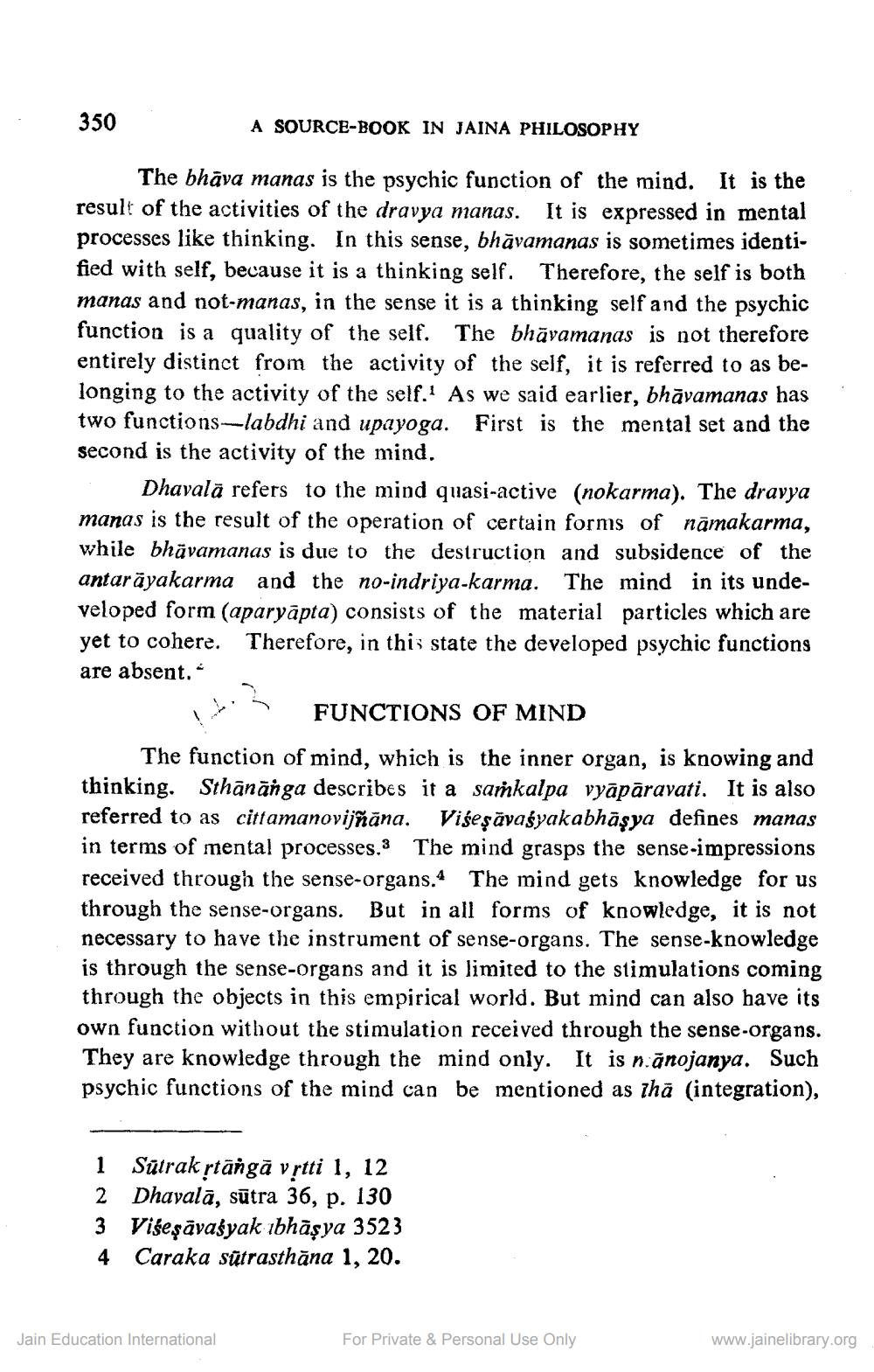________________
350
A SOURCE-BOOK IN JAINA PHILOSOPHY
The bhava manas is the psychic function of the mind. It is the result of the activities of the dravya manas. It is expressed in mental processes like thinking. In this sense, bhavamanas is sometimes identified with self, because it is a thinking self. Therefore, the self is both manas and not-manas, in the sense it is a thinking self and the psychic function is a quality of the self. The bhavamanas is not therefore entirely distinct from the activity of the self, it is referred to as belonging to the activity of the self. As we said earlier, bhāvamanas has two functions-labdhi and upayoga. First is the mental set and the
second is the activity of the mind.
Dhavala refers to the mind quasi-active (nokarma). The dravya manas is the result of the operation of certain forms of namakarma, while bhavamanas is due to the destruction and subsidence of the antarāyakarma and the no-indriya-karma. The mind in its undeveloped form (aparyāpta) consists of the material particles which are yet to cohere. Therefore, in this state the developed psychic functions are absent.
FUNCTIONS OF MIND
The function of mind, which is the inner organ, is knowing and thinking. Sthānanga describes it a samkalpa vyāpāravati. It is also referred to as cittamanovijñāna. Viseṣāvasyakabhāṣya defines manas in terms of mental processes. The mind grasps the sense-impressions received through the sense-organs.4 The mind gets knowledge for us through the sense-organs. But in all forms of knowledge, it is not necessary to have the instrument of sense-organs. The sense-knowledge is through the sense-organs and it is limited to the stimulations coming through the objects in this empirical world. But mind can also have its own function without the stimulation received through the sense-organs. They are knowledge through the mind only. It is nanojanya. Such psychic functions of the mind can be mentioned as thā (integration),
1 Sūtrak ṛtāngā vṛtti 1, 12 2 Dhavalā, sūtra 36, p. 130 3 Viseşāvasyak ibhāṣya 3523 4 Caraka sutrasthāna 1, 20.
Jain Education International
For Private & Personal Use Only
www.jainelibrary.org




